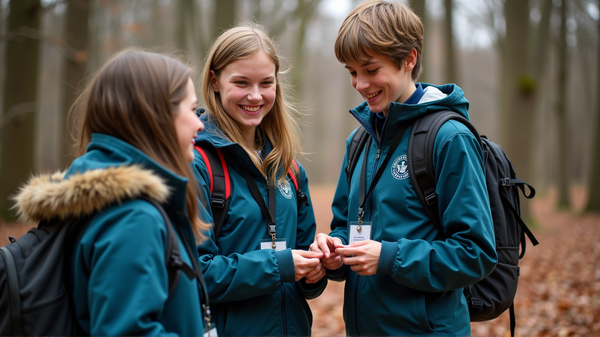Beyond the Books: The Unseen Education of College Life
As college students flood campuses with dreams and aspirations, it’s not just textbooks that mold their futures. A recent study highlights a remarkable fact: 62% of college graduates, including two-year-degree holders, recognized their collegiate years as pivotal not only for intellectual enrichment but for personal growth as well. But what’s behind this transformation? It’s not merely the standard lecturing of professional knowledge.
The True Essence of Universities
Universities have historically acted as hothouses for intellectual and personal development. Institutions once focusing solely on knowledge transfer now emphasize environments where students can engage and interact meaningfully. Participation in a lecture can become an eye-opening experience—not simply for academic achievements but because it closes distances between like-minded individuals aiming for similar futures.
Intimate Encounters with Ancient Traditions
Walk into a lecture hall today, and you might unknowingly embrace time-honored traditions dating back to ancient philosophers like Plato, Aristotle, and Socrates. Their belief in dialogue for intellectual and moral growth echoes today as students immerse in debates and discussions, fundamentally reshaping their understanding of various subjects.
Debates: A Catalyst for Change
In-class debates serve a dual purpose: presenting varied perspectives and developing argumentative skills. Today’s structured debates are reminiscent of the Academy founded by Plato in 387 BC in Athens, Greece, where questioning was encouraged, fostering thoughtful, introspective individuals. According to The Post, this dynamic approach remains relevant and purposeful.
The Powerful Socratic Method
Introduced by Socrates, the Socratic Method or circle challenges students to delve deep into topics, evoking crucial introspection and inquiry. Although it can be grueling, many find it pivotal for personal and academic enlightenment, pushing students out of comfort zones and forcing growth.
Discovering Self through Group Dynamics
Group projects, an often-dreaded component of college life, offer unexpected revelations. These collaborations might reveal personal strengths or weaknesses, catalyzing self-actualization and teaching the importance of teamwork—or at times, the necessity of individual effort.
More Than a Textbook Journey
While universities strive to cultivate critical thinkers, an overlooked benefit emerges—self-discovery. Personal growth in college emerges, sometimes intentionally through structured curricula, sometimes through delightful accidents in casual interactions.
In concluding today’s exploration of how colleges teach more than facts, one might ponder: How much of their personal transformation would students credit to an unintentional part of their educational journey?




